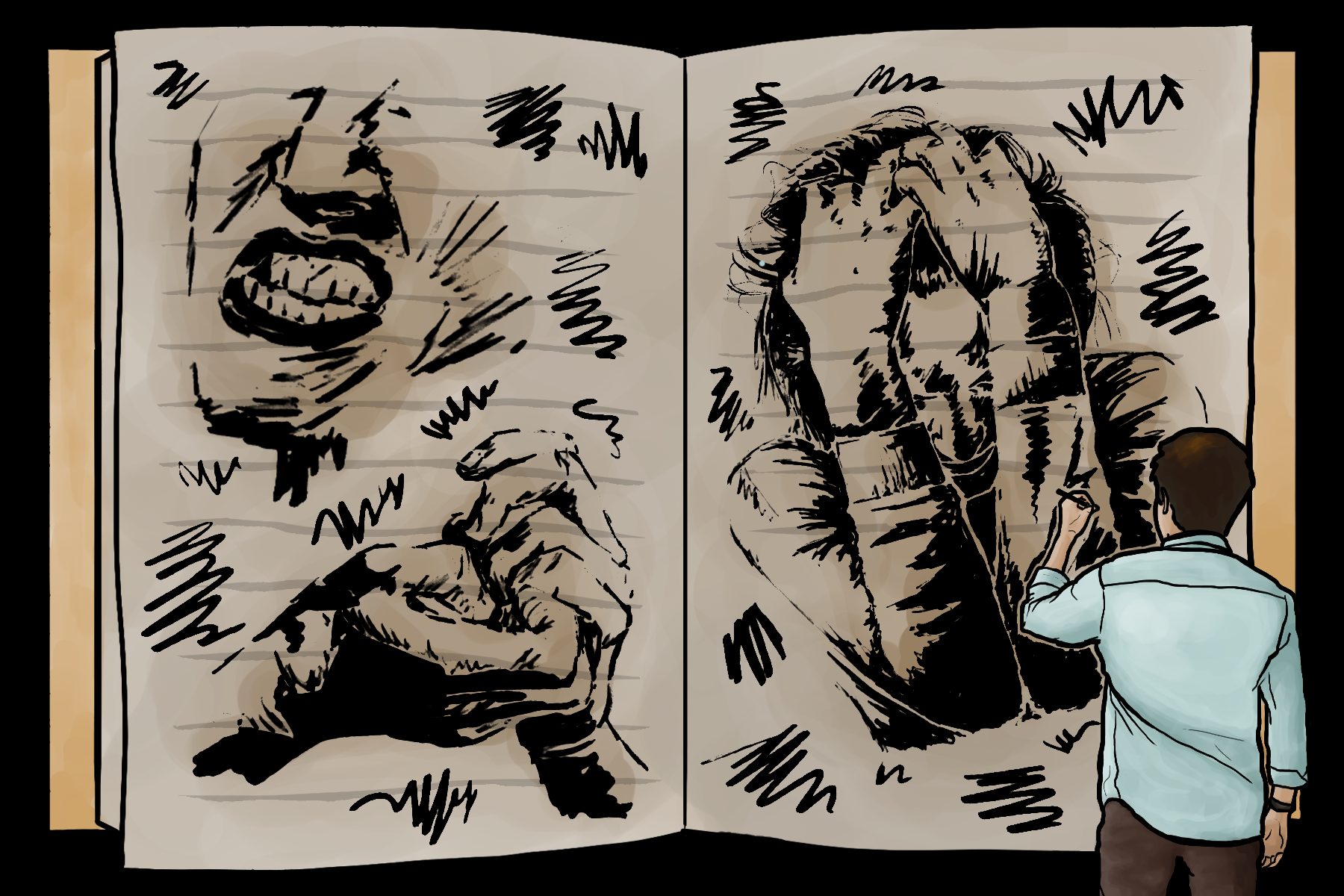Since the beginning of the pandemic, and even before, mental wellness in the U.S. has been on the decline. Suicidal ideation has increased 25% in recent years, but only 27.3% of youths with severe depression received consistent treatment in 2021, according to Mental Health America. Since the pandemic began in March 2020, unprecedented levels of anxiety and depression are still being reported. Throughout the pandemic, emergency admissions for panic and anxiety have surged among adolescents, and many individuals who are admitted are met with unprepared workers and inadequate treatment.
Many young people already suffering from anxiety and depression found their plans offset and their futures increasingly uncertain when the pandemic hit. Cut off from friends and activities, many have found that the anxiety or depression they dealt with before became unmanageable. With lives changed and routines disrupted, people are experiencing a profound but vague sense of loss with no particular source, meaning it is all the more difficult to address.
This is where expressive writing comes in.
Expressive writing is a form of therapeutic journaling with a vast array of benefits. It has been shown to improve mood disorders, reduce the severity of symptoms among cancer patients and boost memory. Expressive writing is an activity anyone can do on their own to help cope with trauma and stressful life events. In these stressful times, and with mental health on the decline, it may prove to be a highly valuable tool for people.
The concept of expressive writing is relatively simple. It is deeply personal, free-flowing and does not require accurate spelling, punctuation or grammar. You are meant to let your feelings loose with no regard for format or structure. Your focus is more on your feelings about an event, person, memory or object, which is what differentiates it from journaling. Most of the time, expressive writing is messy and erratic, and that is perfectly OK.
Much of the research done on expressive writing has been conducted by James Pennebaker, a psychology professor at the University of Texas. In 1986, he ran a study on expressive writing that asked participants to write continuously for 15 minutes each day over the course of four days. One group was told to write objectively about superficial topics, and another was asked to write about the most traumatic experiences of their lives.
What the study found was that the group that was asked to write about their traumatic experiences made significantly fewer visits to the doctor over the following months compared to the group that only wrote about superficial topics. The study also found that the same group experienced many wonderful benefits, including decreased anxiety, blood pressure, depression and muscle tension, along with improved memory, sleep quality, grades and work performance.
“Previously, virtually no one had ever encouraged them to write about some of the most significant experiences of their lives. Many students came out of their writing rooms in tears,” Pennebaker wrote about participants’ reactions to the experiment. “But they kept coming back. And, by the last day of the experiment, most reported that the experience had been profoundly important for them.”
While many of the participants reported feeling sad after writing about their traumatic experiences, this was a temporary effect and was outshone by the positive long-term benefits.
Importantly, Pennebaker did further research where he discovered that the people who experienced the most significant positive changes due to expressive writing wrote about their experiences from multiple perspectives. They described their own viewpoints, but then also explored how others may have viewed the same event before returning back to themselves. They also used more words denoting thought, such as “consider,” “reason” and “think.” This encouraged productive reflection, which helped participants discover a better path forward.
Pennebaker’s writing prompt is commonly referred to as the Pennebaker Paradigm. It is based on the idea that having secrets or buried trauma prevents healing. Expressive writing allows people to bring those secrets out into the light and confront them, whereas suppressing them causes people stress that they may not even be conscious of.
Expressive writing can help anyone deal with trauma, stress and anxiety and can lead to greater peace of mind. If you are going through a tough time right now mentally, I highly encourage you to give expressive writing a try. Below are a few ways you can get into expressive writing and what to consider throughout the process.
- Write for a minimum of 15 minutes every day for four days. Your topic should be something that is extremely personal and emotionally important to you. Do not think; just write, and write continuously. If you don’t know what to write, repeat what you just wrote or draw a line. Let your thoughts come out pure and unfiltered. This is a prompt that allows you to access buried secrets and painful experiences of the past in a space without judgment or restriction.
- Do not worry about structure, style, punctuation, sentence form or grammar. Do not worry about writing things down in chronological order. Your focus should be on your feelings and emotions.
- If you feel that at any point the writing gets to be too much, and you find that continuing will put you into a headspace you don’t want to be in, stop. The goal is to bring the pain out but not to get lost in it.
- Write only for yourself. This writing will never be seen by anyone but you, and it will receive no feedback. After you are done, feel free to dispose of it in any way you wish.
- Temporarily, you may feel sad, down or heavy after expressive writing, but this effect is brief and will go away soon.
Pennebaker notes that there are many different ways to experience the benefits of expressive writing, and if you are not a writer, making personal voice recordings of yourself or keeping a video diary can work just as well.
“The idea here is getting people to come to terms with who they are, where they want to go,” says Dr. Pennebaker. “I think of expressive writing as a life course correction.”

















